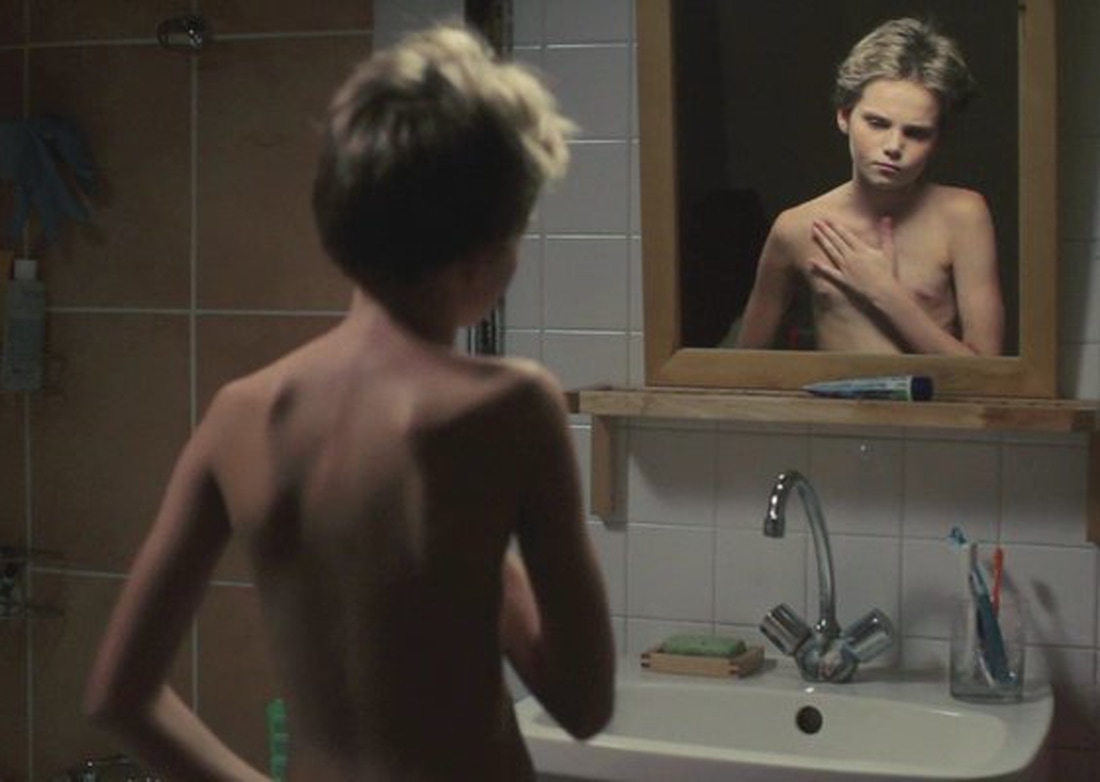curator's noteFor the MUBIVIEWS debut film we wanted to challenge our writers by discussing the sensitive topic of gender exploration, which is so rarely seen from a child’s point-of-view. The film in question is French social realist drama TOMBOY (Céline Sciamma 2011) about a ten-year-old tomboy who passes as a boy to her friends throughout the course of the summer. The unfamiliar setting for the protagonist Laure (Zoé Héran) allows her to safely experiment with her gender through her persona Mickäel. The film tackles isolation, identity and friendship in a tone which MUBI itself describes as ‘delicate and insightful’ highlighting the innocence behind the film. WHAT IS A TOMBOY?EM HOUGHTONWhile the word “tomboy” in English is still shrouded in stigma of gender non-conformity, the French definition “garçon manqué” - which translates literally as “failed boy” - lends a more powerful look at what gender means for ten-year-old Laure (Zoé Héran) in the French coming-of-age drama TOMBOY (Céline Sciamma 2011). Laure’s gender is left unstated until a delicate moment when her female genitalia is revealed as she steps naked from the bath. This moment not only establishes that Laure is biologically female, it also shows how involuntary her gender is. Only when she is stripped bare of the male physicality she has tried so hard to perfect is it clear that she is not who she wants to be. Laure spends a lot of time learning to act like a boy, creating a fake PlayDoh penis to position in the swimming trunks she has fashioned herself out of a girl's swimsuit, as well as spitting like her male friends when they play football. She goes to these extremes to mask her femininity in order to create a character to whom she can relate: Mickäel. The film’s title replicates the same sense of vagueness that is felt by Laure in her gender identity as the “garçon manqué”. TOMBOY symbolises the struggle of young girls who do not want to conform to society’s gender roles and Laure does so by adopting a male way of life. Because of this, the film serves as a powerful commentary on the representation of gender as something that is much more than biology. While Laure is biologically female, she creates a male façade that she uses to become more comfortable in her own skin. The persona of Mickäel creates a sense of safety for Laure as she leaves behind the expectations of her femininity. Every day this week a different writer will provide their perspective on our MUBIVIEWS film and each post will be open to comments from our readers. Watch TOMBOY on mubi.com until 3 April 2017 and join the discussion!
4 Comments
Summer Manning
27/3/2017 11:12:40 am
Such a wonderful start to the new feature! I wasn't aware of the French term for tomboy before and it really adds that extra depth to the film.
Reply
Matthew Wears
27/3/2017 09:20:47 pm
I completely agree with Summer, the French term for tomboy definitely gives the film some added depth. I like the way that you have addressed the commentary that the film has on trans people in general. It shows how society can view these individuals as 'failed', when in actual fact it just allows them to feel more comfortable and free, which is shown fantastically within Tomboy.
Reply
Steven Fegan
27/3/2017 09:27:40 pm
The vagueness of the title is an astute observation, the idea of it being vague is a trait that runs through the rest of the film where it's often hard to tell what Laure's parents think about her identity struggle, until perhaps the final act.
Reply
George Lee
27/3/2017 09:58:55 pm
That's so interesting, that makes so much more sense in the context of french cinema. I think it would have really enhanced the experience if they re-named the film for an English audience or at least specified the french definition.
Reply
Your comment will be posted after it is approved.
Leave a Reply. |
MUBIVIEWSOne MUBI film, five perspectives, endless possibilities. Archives
July 2017
Categories
All
|



 RSS Feed
RSS Feed
